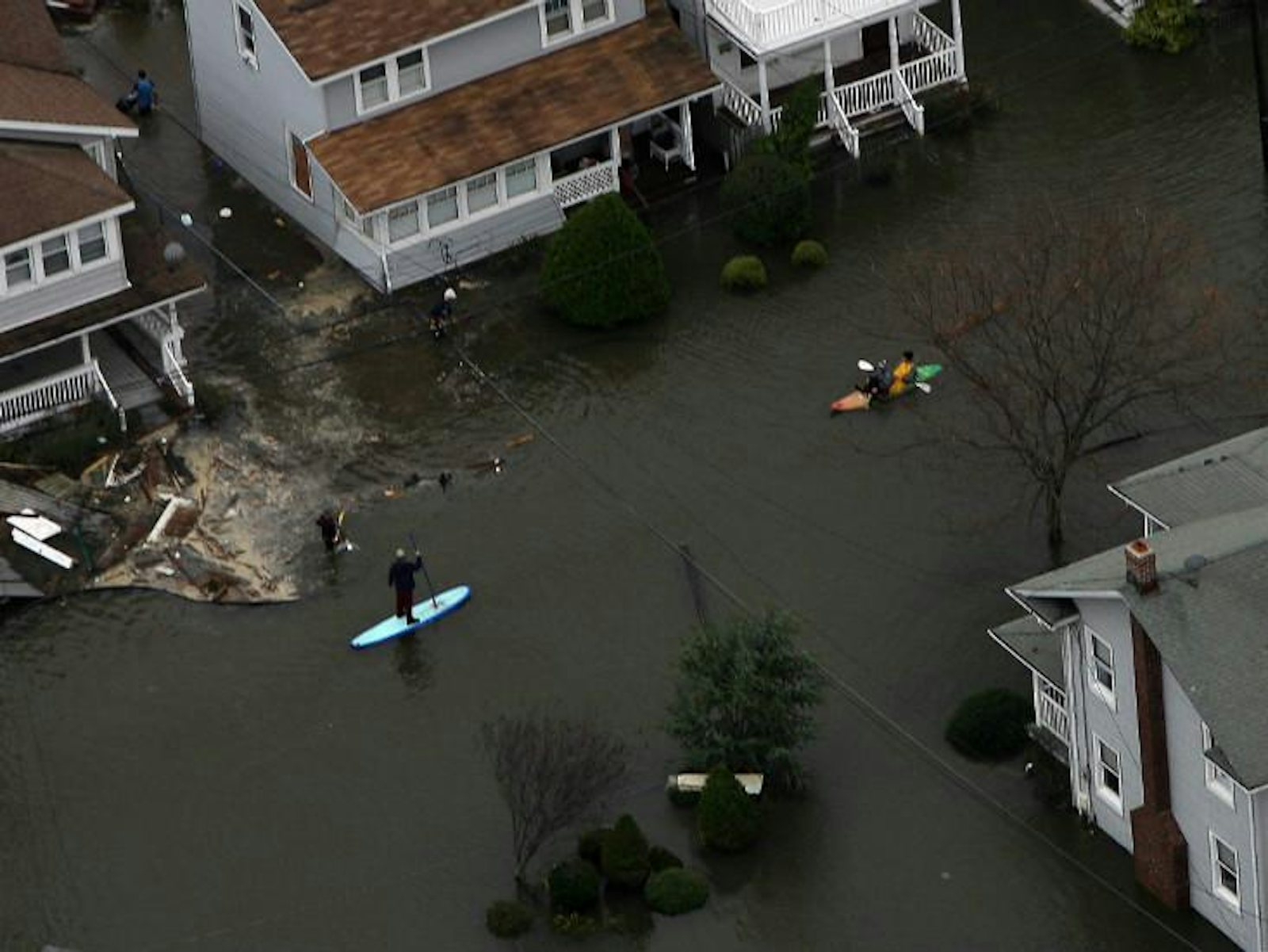This afternoon, President Obama gave a major speech at Georgetown University laying out his administration’s climate and energy policy. The most notable bit was probably that he’s directing the EPA to take the unprecedented step of creating federal limits on power plants’ emissions of carbon dioxide, the gas that is the main driver of global warming, and which was declared a pollutant by the EPA in 2009. The specific limits won’t be set for two years, so it’s impossible to say what effects they will have. But the president described this move as the best alternative to inaction in Congress, which has declined to do much of anything on the issue.
Yesterday, there was an arguably more important and revealing statement on global warming, although it won’t get nearly as much press. The Geneva Group, an insurance company trade organization, released a report declaring that climate change is bringing their industry into a new era [pdf]—and not in a good way. Global warming, the report says, has already raised ocean temperatures enough to significantly increase the chances of highly destructive storms. At the same time, insurance policy holders, such as homeowners, are not taking sufficient steps to protect their property from catastrophic damage. The combination “could create a risk environment that is uninsurable in some regions,” reads the report. “Examples with this potential are U.K. flood or Florida wind storm insurance.”
Rendering an entire U.S. state or nation “uninsurable” is a pretty bad possibility for the people who live there—and for insurance companies that want them as customers. The report also takes a notably activist tone in encouraging the industry to help prevent this kind of outcome:
Investment in innovation and global capacity-building for new energy technologies and infrastructure does not only promise good returns but also contributes to the reduction of greenhouse gas emissions which will ultimately create a more resilient society. To support this transition, the industry should use its unique knowledge base to inform the debate on climate change and actively lobby government to take action to reduce risks and curb emissions of greenhouse gases. These actions, alongside the support of science in tackling the major challenges in projecting the impacts of ocean warming and climate change more generally, will help the insurance industry to avoid market failures and increase societal resilience.
So even as Congress avoids tackling climate change due to some combination of fear, uncertainty, and doubt, the major players with billions of dollars in the weather game seem clear enough about the risks to get involved in a serious way. (See the related story, “How to Insure Against a Rainy Day,” in the current issue of Nautilus.) But even under a best-case scenario where the globe flicks on the willingness to handle global warming, the insurance industry predicts a lot of unpredictability in our future:
The implications of the level of ocean warming that already has been attained include the need to reassess the way we quantify and manage today’s catastrophe risk; specifically, after moving away from historical averages, the need to define a “new normal” which is itself highly uncertain.
Amos Zeeberg is the digital editor of Nautilus and oversees Facts So Romantic. Find him on Twitter @settostun.


























